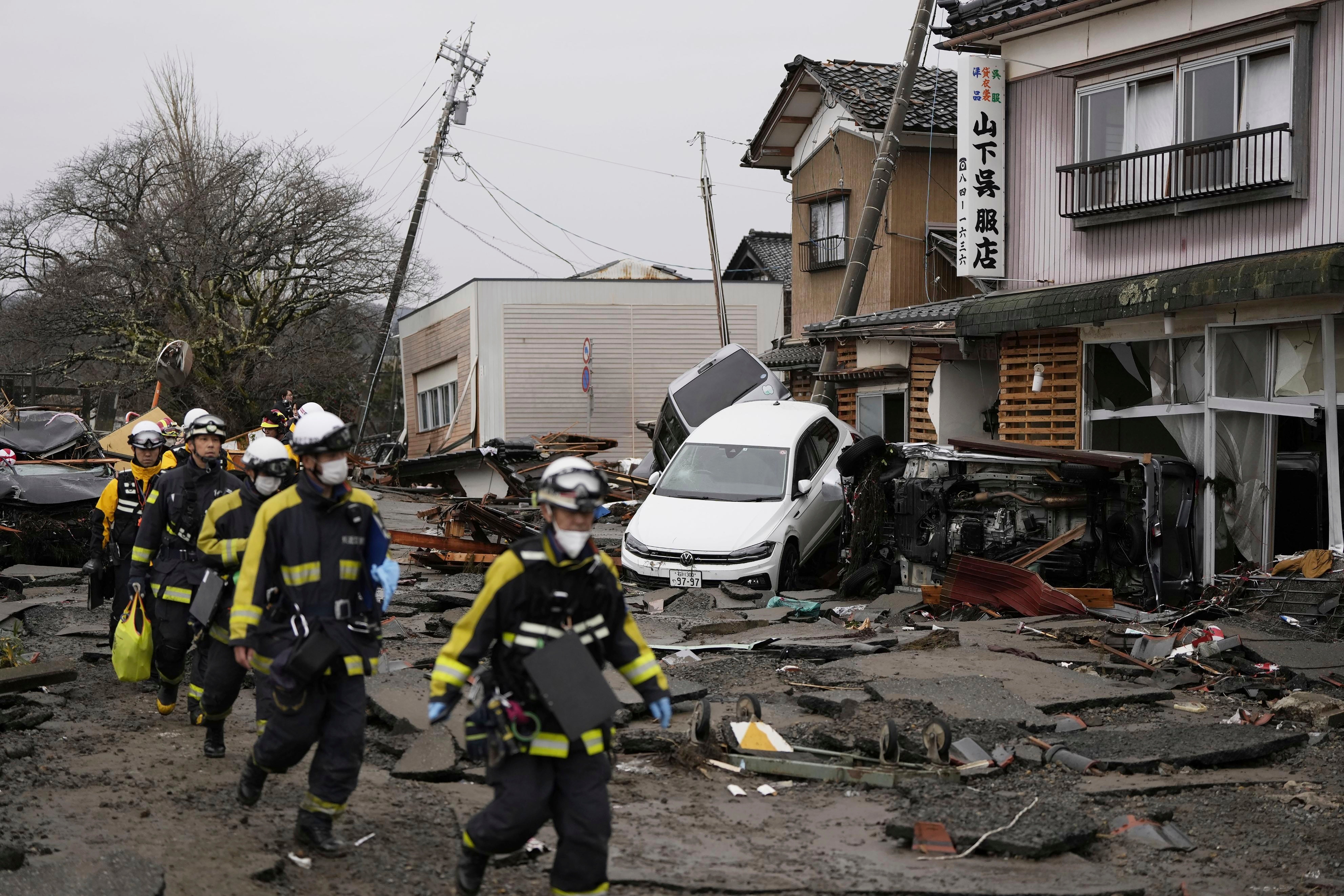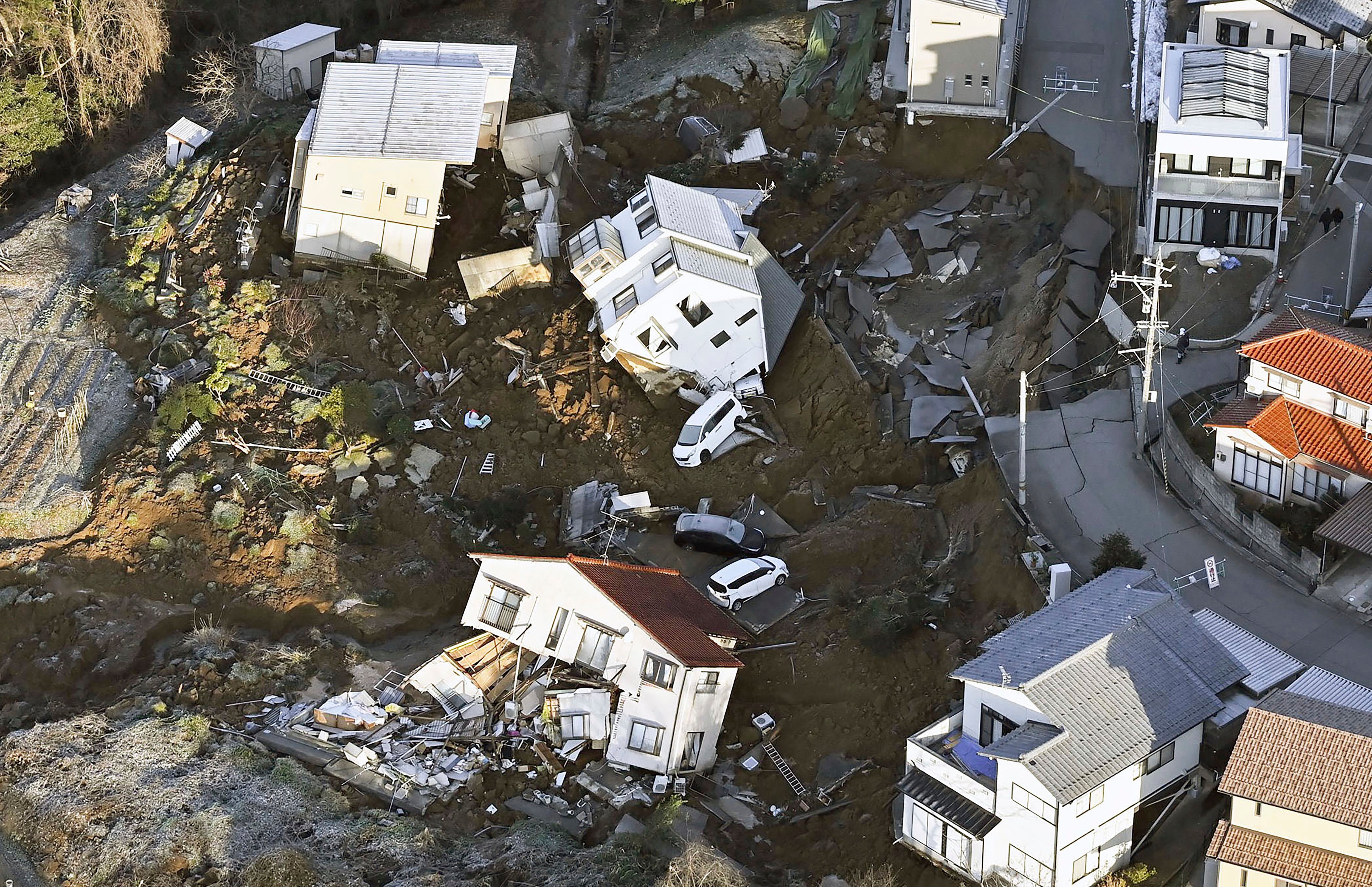Death toll from Japan earthquake rises to 81 as search for survivors continues
At leats 51 people still missing as thousands of rescuers brave cold to find survivors
The death toll from Japan's devastating earthquake rose to 81 on Thursday with rescuers still racing to save people trapped under debris, as the crucial 72-hour survival window came to an end.
At least 51 people were still unaccounted for as of Thursday morning in Ishikawa prefecture, which was struck by a powerful 7.6 magnitude quake on New Year's Day, destroying houses and triggering tsunami waves that crashed into northern and western coastlines.
Thousands of security personnel braved the cold to search for the missing amid warnings of downpours and possible snow, that could raise the risk of landslides. The temperature is expected to drop to around 2C overnight.

Prime minister Fumio Kishida in Tokyo had called for an "all-out effort" to save as many lives as possible during the first 72 hours of the incident, before the prospect of survival rapidly diminishes. “This is a race against time, and I feel that we are at a critical moment,” Mr Kishida said on Wednesday.
That deadline passed at around 4.10pm local time (7.10am GMT) on Thursday, three days after the first earthquake violently shook Ishikawa. Hundreds of aftershocks, many measuring more than magnitude 5, have been recorded since.
Mr Kishida later announced that the number of troops dispatched for rescue operations is increasing from about 1,000 to 4,600.
Sniffer dogs joined the military in the search of the victims.
The narrowness of the Noto peninsula, about 300km from Tokyo on the opposite coast, has added to the challenges in reaching some communities. Water, power and mobile phone services were still down in some areas.

In Wajima city, dozens of peple were still buried under collapsed buildings as damaged roads hindered rescue operations, the Japan Times reported. Of the dead, 44 people were in Wajima and 23 in Suzu, with the rest spread across five towns.
About 34,000 people, some hungry and cold, stayed at evacuation centres in Ishikawa as of Thursday.
The Kishida administration has planned to allocate nearly 4bn yen (£22m) from reserve funds to beef up its response.
Naomi Gonno told the Associated Press that she and her children got out of their house just as it came crashing down.
But her children were screaming "Granma", and Ms Gonno saw that her mother was trapped under the smashed house, with only her hand visible. She was able to squeeze her way out through a tiny space, she said.
"I can't believe we're still alive," she said. "We are living in fear."
Takako Izumi, a disaster science professor at Tohoku University, said time is needed to figure out logistics because roads are often blocked after an earthquake, and large trucks can’t get through to deliver aid. If land routes aren’t accessible, aid may have to be dropped from the sky or brought in by boat.
The winter cold adds to health risks, and some people may still have not reached an evacuation centre, she added.
“We need to accurately assess the damage first. And then a proper response can come, and what’s needed can reach the right places,” Ms Izumi said.
Join our commenting forum
Join thought-provoking conversations, follow other Independent readers and see their replies
Comments
Bookmark popover
Removed from bookmarks